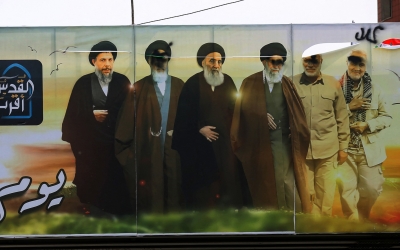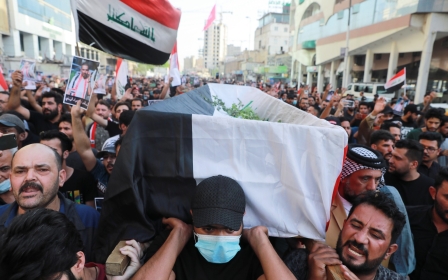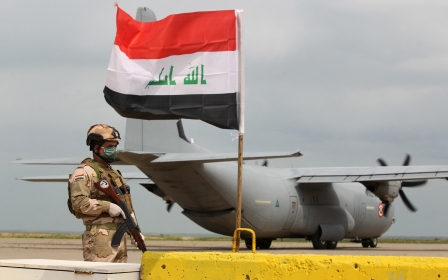Iraq: Armed factions end truce with US over failure to withdraw troops
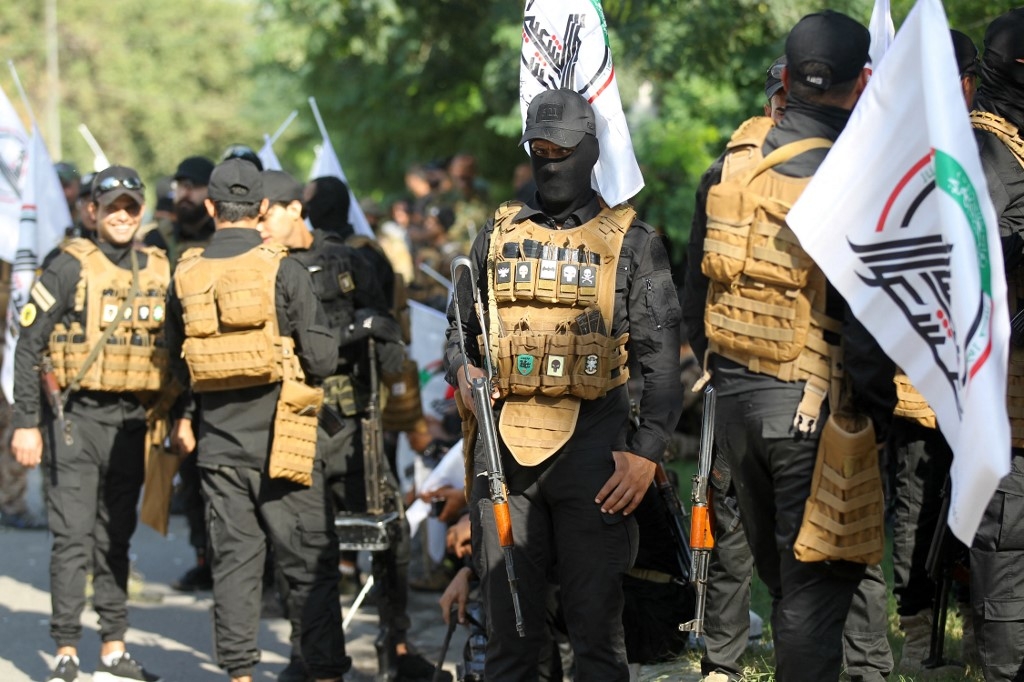
Iraqi armed factions backed by Iran have declared the end of an unofficial truce with the US and threatened to carry out attacks targeting military convoys and army bases, the commander of one prominent faction told Middle East Eye.
The commander said on Monday that the decision to end the truce, which came into effect last October, was due to "the lack of seriousness of the Iraqi and US governments in scheduling the withdrawal of US forces from Iraq".
Earlier on Monday, three missiles targeted the sprawling Ain al-Assad base in Iraq's western desert where US forces are stationed. The attack, which saw at least one missile land inside the base, did not result in any casualties, according to Iraqi security officials.
Previously, attacks on US troops and their western allies in the anti-Islamic State (IS) group military coalition had become routine, as the paramilitaries sought to push the US from Iraq.
In October, the Iran-backed factions agreed to an armistice with US forces when the Trump administration threatened to close its Baghdad embassy and attack Iranian targets inside and outside Iraq.
Since then, the truce had largely held, despite a few violations such as the rocket attack on Baghdad International Airport earlier this month.
Pressure had been building on Iraqi Prime Minister Mustafa al-Kadhimi to force through the withdrawal of foreign forces since the January 2020 US assassination of top Iranian general Qassem Soleimani and Abu Mahdi al-Muhandis, the godfather of most Shia armed factions.
In April, Iraq and the US announced plans to withdraw US-led coalition troops according to timetables determined by joint technical military committees.
The announcement of a third round of strategic dialogue between the two parties included an agreement to change the nature of the anti-Islamic State coalition's mission from combat to advisory and training.
'The language of force'
On Saturday, militia groups calling themselves the Iraqi Resistance Coordination Commission (IRCC) issued a statement slamming the Iraqi government, stating it was given multiple opportunities to determine the fate of foreign forces, "but what resulted from the (Iraqi-American) rounds of talks (with the US) was very bad and unfortunate."
The IRCC, which consists of seven armed factions including the powerful Asa'ib Ahl al-Haq, Kataeb Hezbollah and the Badr Organization, warned that they would now launch attacks "to force the occupation out."
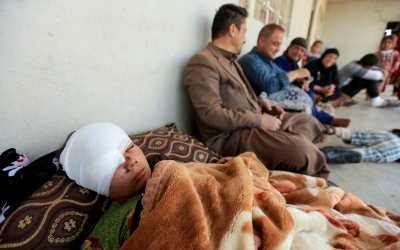
"By rejecting to exit its forces [from Iraq], the US administration has sent us a clear message that they only understand the language of force. Therefore, the Iraqi resistance confirms its full readiness to carry out its legitimate, national and legal duty to achieve this goal (force them to withdraw)," the statement read.
A prominent commander told MEE that "all factions agreed to escalate [attacks] against American forces. They decided to carry out more attacks, some of which would be previously unfamiliar in Iraq.
"It was decided that the operations would be qualitative and effective. Some would be carried out using missiles, while others would be carried out by drones."
As of Monday evening, there was no response from the Iraqi government towards the new threats, but a senior commander of the Popular Mobilisation Authority (PMA) - a governmental umbrella which oversees several of the factions, told MEE that the PMA had "nothing to do with this escalation, and will not be a part of it."
"The agreement [between the commanders of the PMA and the armed factions] stipulated that the PMF's (Popular Mobilisation Forces) would not be drawn into this matter and the PMA would not criticise operations [against US forces] and instead turn a blind eye to them."
Middle East Eye delivers independent and unrivalled coverage and analysis of the Middle East, North Africa and beyond. To learn more about republishing this content and the associated fees, please fill out this form. More about MEE can be found here.


